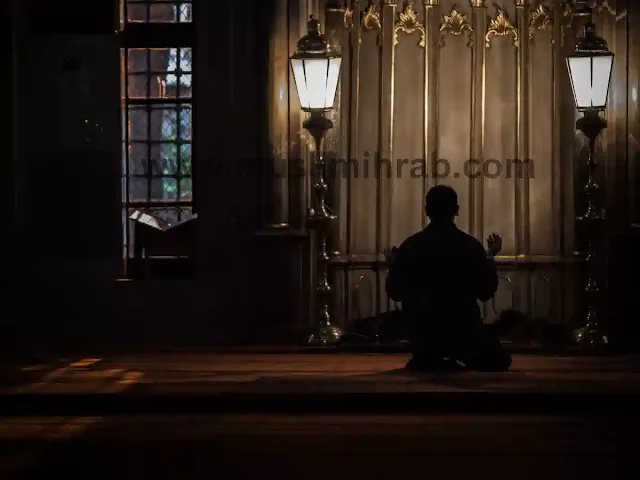Zakariya was not only a prophet but also a caretaker of the sacred Temple in Jerusalem. He dedicated his life to serving Allah, ensuring the purity of worship in the temple and the education of his people. Yet, amidst this life of service, Zakariya harbored a deep, personal sorrow—a longing for a child to carry forth his lineage of prophethood.
He and his wife had grown old. His hair had turned white, and his strength had waned. But Zakariya’s yearning for a child persisted, not out of personal ambition, but because he feared for the future of his people. Who would guide them after his death? Who would uphold the faith and ensure that the message of monotheism endured?
This concern grew even stronger as Zakariya witnessed the miracle of Maryam (Mary), a girl under his care. Maryam had been dedicated to the temple by her mother and grew up with an extraordinary devotion to Allah. Her piety shone, and Allah’s blessings upon her were undeniable.
Whenever Zakariya entered Maryam’s chamber, he found provisions that could only have been sent by Allah. Fruits of the season, even when they were out of season, lay before her. Zakariya, astounded by this, asked her, “O Maryam, from where does this come to you?” She replied, “It is from Allah. Indeed, Allah provides for whom He wills without account” (Surah Ali Imran 3:37).
This profound interaction ignited hope in Zakariya’s heart. If Allah could bless Maryam with sustenance in such miraculous ways, then surely, He could grant Zakariya the impossible—a child in his old age.
One night, standing alone in prayer within the temple, Zakariya turned to Allah with a supplication that came from the depths of his soul. “My Lord, indeed my bones have weakened, and my head has filled with white hair, and never have I been in my supplication to You, my Lord, unhappy. And indeed, I fear the successors after me, and my wife has been barren, so give me from Yourself an heir” (Surah Maryam 19:4-5).
Zakariya’s request was simple yet profound. He asked not just for a child but for an heir who would inherit not wealth or status but prophethood and righteousness—a successor to uphold the truth.
Allah’s response came swiftly, delivered through the angel Jibreel (Gabriel): “O Zakariya, indeed We give you good tidings of a boy whose name will be Yahya (John). We have not assigned to any before [this] name” (Surah Maryam 19:7).
Zakariya, though overwhelmed with joy, was human. In disbelief, he asked, “My Lord, how will I have a boy when my wife has been barren, and I have reached extreme old age?” (Surah Maryam 19:8). Allah reassured him that it was His decree and that nothing is impossible for Him.
As a sign, Zakariya was instructed not to speak to people for three days except through gestures. This period of silence was not a punishment but an opportunity for Zakariya to immerse himself in gratitude and remembrance of Allah. He emerged from this seclusion with renewed faith, praising Allah for His boundless mercy.
Soon after, Zakariya’s wife conceived, and the miracle of Yahya unfolded. Yahya grew to become a prophet of immense virtue, known for his wisdom, purity, and devotion from a young age. Allah described him as “a leader and a chaste, and a prophet from among the righteous” (Surah Ali Imran 3:39).
Zakariya’s story is not merely one of longing fulfilled but also a testament to Allah’s ability to create from nothing and His attentiveness to the sincere prayers of His servants. It is a reminder that no matter how dire a situation may seem, Allah’s mercy is all-encompassing, and His power knows no bounds.
Zakariya’s life, filled with trials and eventual joy, continues to inspire believers. His unwavering faith, even in the face of impossibilities, serves as a guide for all who turn to Allah in their times of need.
Lessons from Zakariya’s Story
- Patience and Trust in Allah’s Timing: Zakariya’s years of longing for a child did not diminish his faith. Instead, he turned his sorrow into sincere supplication, teaching us the value of trusting Allah’s plan.
- The Power of Dua: Zakariya’s heartfelt prayer is a reminder that no matter how impossible a situation may appear, a sincere supplication can open doors to unimaginable blessings.
- Gratitude and Reflection: The three days of silence that Allah decreed for Zakariya symbolize the importance of reflecting on Allah’s blessings and expressing gratitude.
- Righteous Intentions: Zakariya’s desire for a child was not for personal gain but for the continuation of righteousness. This highlights the importance of pure intentions in our supplications.
- Allah’s Boundless Mercy: Zakariya’s story reassures us that Allah’s mercy is limitless, and His miracles are not confined by human limitations.

